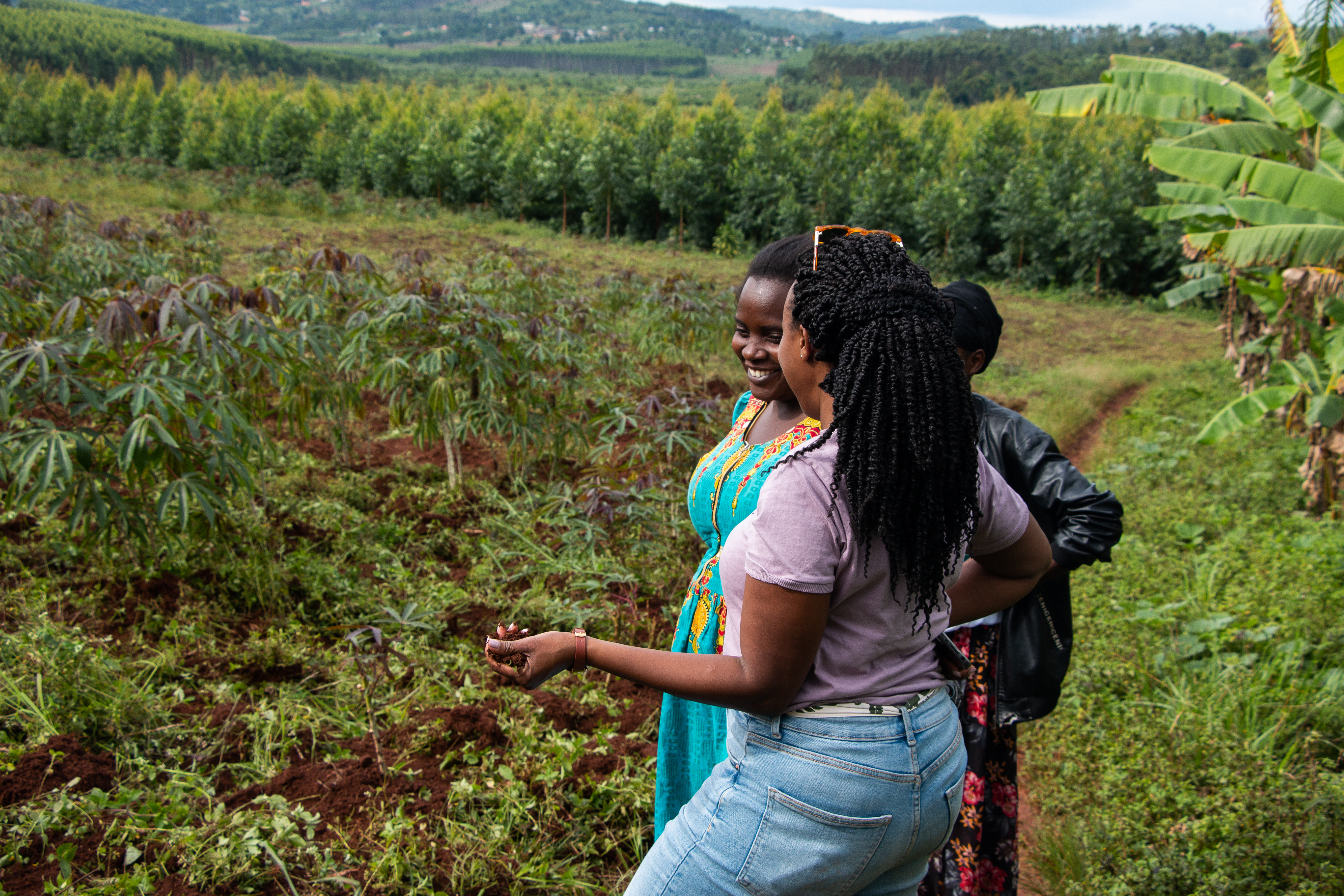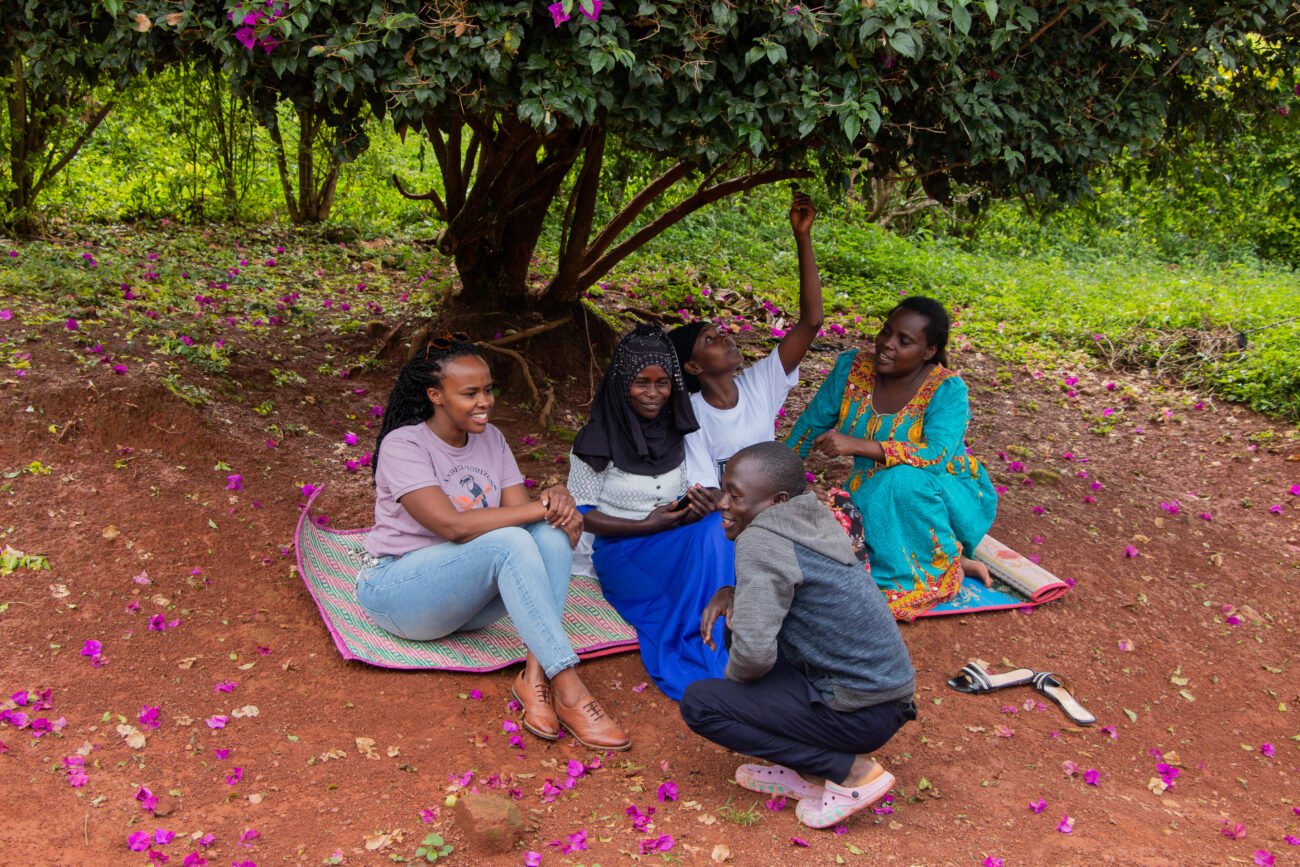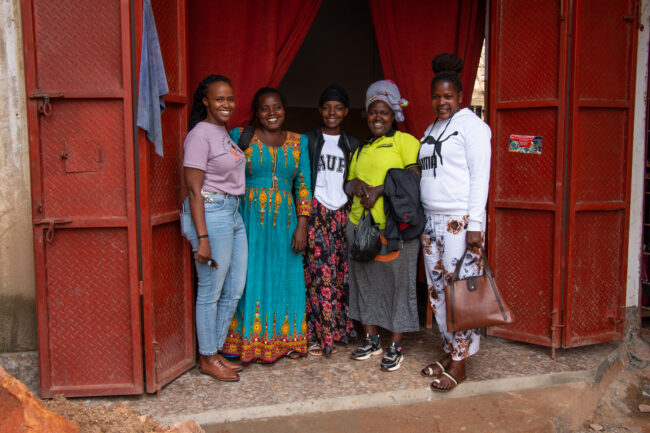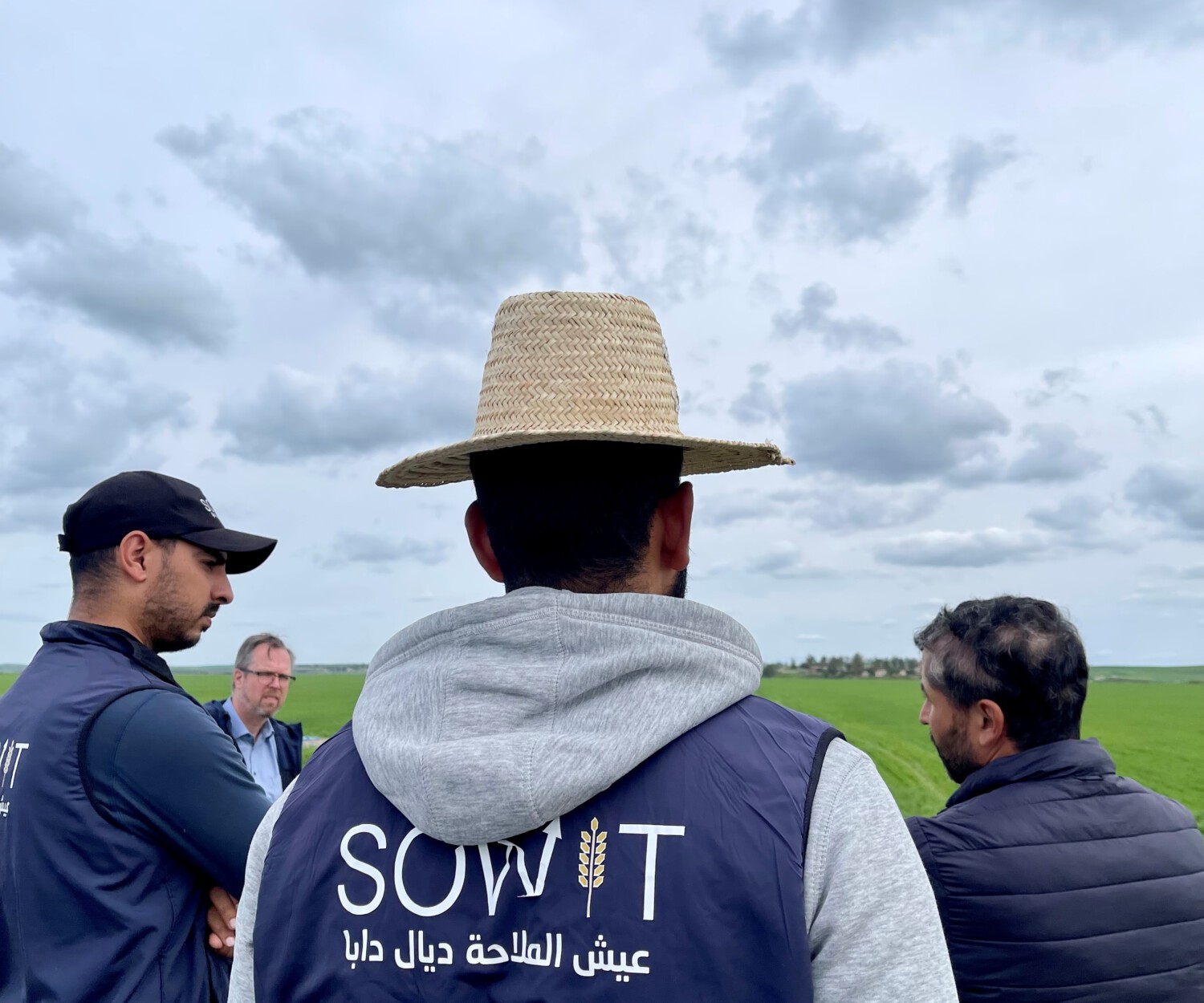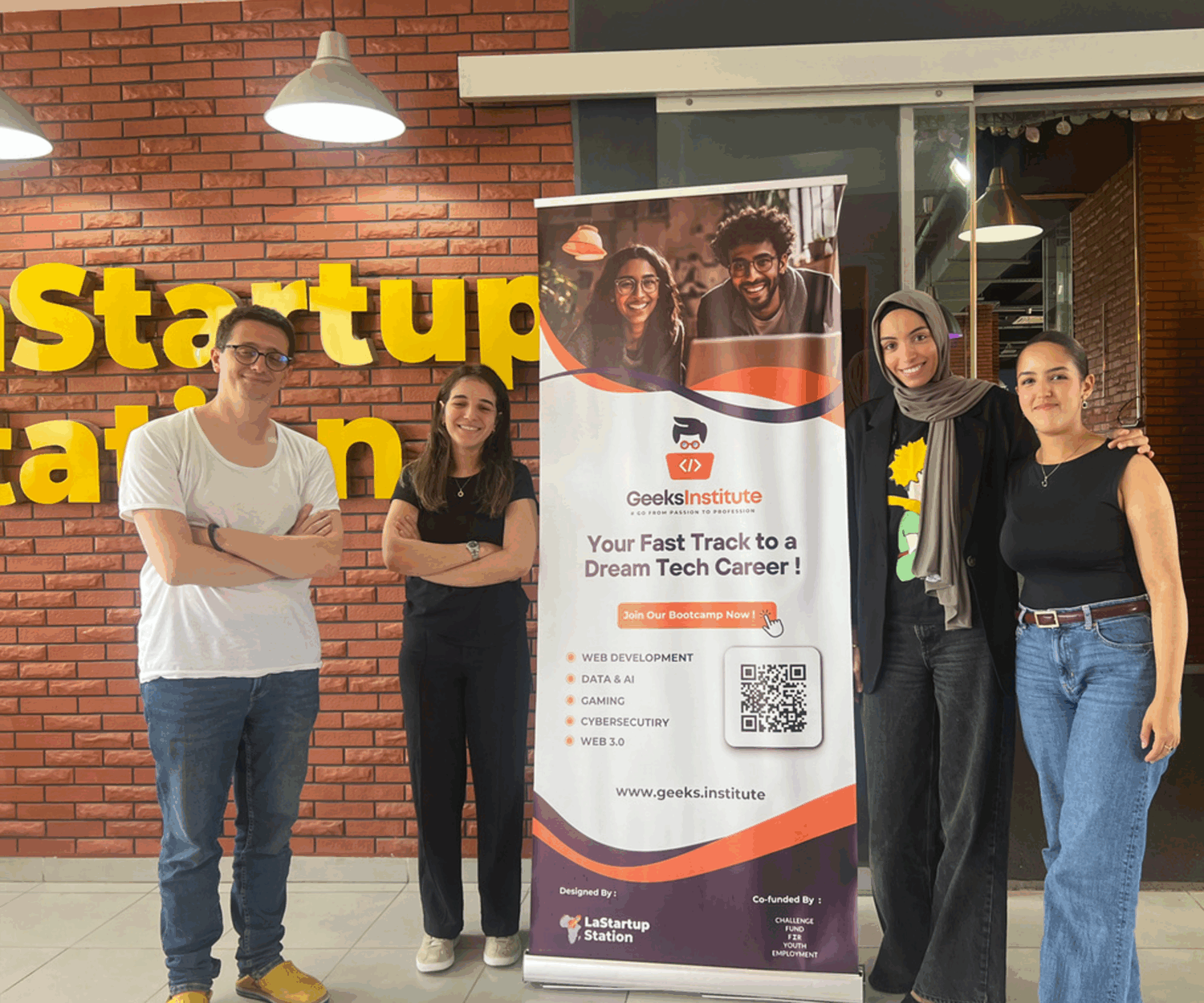Simbuka, in collaboration with 100WEEKS, Rabo Foundation, and AMFIU (Association of Microfinance Institutions Uganda), embarked on a transformative journey focusing on revitalising lending processes to empower Ugandan female youth farmers. With CFYE’s support, their project ‘From Micro Giving to Micro Credit’ aims to support and create opportunities to uplift 600 Ugandan young women through a combination of financially driven and educative incentives.
In this case study, we’ll explore how Simbuka accelerates inclusive banking to address gendered disparities in Ugandan loan systems and highlight the impact achieved in the projects’ first 28 weeks.
Addressing the Agricultural Loan Gap: A Gendered and Digitized Approach
In Uganda, the agricultural sector is situated as the economic powerhouse, holding immense potential for economic growth, and addressing barriers to escape poverty. However, smallholder farmers (SHFs) and farmer cooperatives face various challenges in accessing finance due to the reluctancy of banks and financial institutions to engage in rural and agricultural finance.
This reluctancy stems from several factors. On one hand, residents in rural areas often lack a borrowing history, have limited knowledge and interaction with formal banking systems as well as digital financial tools, and are burdened with high-interest rates on loans. On the other hand, financial institutions face challenges in reaching residents in remote rural areas with digital solutions, often prolong the decision-making process for loans, and perceive individuals in rural areas as high-risk clients.
The ‘From Micro-Giving to Micro-Credit’ project aims to bridge this gap, focusing on empowering female youth subsistence farmers to transition into business farmers, effectively reducing the disparity between supply (Microfinance Institutions) and demand (farmers) for agricultural finance.
To tackle the challenges head on, the project employs a multifaceted approach. At the its core is the integration of the Simbuka Loan Management System, a cloud based SAAS solution, into lending procedures, serving to digitise and streamline the entire loan application process from onboarding and screening to evaluation, and monitoring. To further enhance the precision of this system, Simbuka has also adopted the Agricultural Credit Assessment Tool (A-CAT), facilitating crop specific cashflow projects, providing precise information on costs and generating realistic payment plans. This not only enables loan officers to better gauge seasonal needs but also enhances their ability to assess the associated risks of the loans, essentially contributing to reduced costs, transparency, and regulatory compliance across the financial institution.
The overarching goal is to create a more effective and sustainable framework for agricultural finance, fostering the growth of business farmers and creating a more balanced ecosystem.
How it Works in Practice
Participants in the programme are organised into groups of 20 to 25 women and over the course of 100 weeks, each group receives valuable support through mobile cash donations and comprehensive training in weekly sessions. These sessions cover skills such as financial literacy, entrepreneurship, life skills, and best agricultural practices. Holistically, the program consists of two main components:
1. Micro-giving: enabling young women to overcome scarcity and equip them with the necessary capital to invest in a future beyond poverty by providing temporary weekly cash support, training, and the coordination of the VSLA (Village Savings and Loan Association) savings groups through 100WEEKS.
2. Micro-credit: facilitated by a financial institution supported by Simbuka, this component financially supports women who transition from the micro-giving phase, with Rabo Foundation playing a crucial role.
The Project’s Impact in its First 28 weeks
While the project itself was launched in August of 2022, participants have only completed the initial stages, a mere quarter of the total duration. Even so, examining the progress and impact within the programme’s initial 28 weeks reveals noteworthy results. Key metrics, as outlined below, highlight the positive changes experienced by participants, including a heightened financial resilience and a surge in entrepreneurial endeavours, evidencing the potential of the programme for not only immediate relief but also laying the groundwork for long-term improvements in the livelihoods of young female participants.
- Access to Clean Water: Increased from 71% to 91%.
- Food security and mental health: Food security improved from 14% to 65% of participants having sufficient access to enough food for a month, with an average daily meal count of 2.5. In regard to mental health, the number of women who often feel happy considering their circumstances jumped from 34% to 56%. Women who never lose sleep because of worries increased from 17% to a significant 47% and women who never feel a loss of confidence surged from 33% to 83%.
- Social capital: Increase of 8% in number of individuals invited to celebrations, 10% in seeking advice and assistance from others, and a 6% upturn in trust, particularly concerning the care of participants’ children.
- Income and assets: Monthly savings escalated from 57,946 UGX (13.83 EUR) to a significant 147,723 UGX (35.28 EUR), nearly tripling in value.
- Investments: Participants’ capacity to invest increased by 76%, with a notable focus on investing in goods or other means that contribute to future benefits such as education, livestock, farming, and equipment.
Inclusive approaches for sustainable economic growth: a road to a brighter future
In just 28 weeks, Simbuka’s collaborative project is making strides in transforming the lives of Ugandan female youth farmers. The inclusive banking approach through the ‘From Micro-Giving to Micro-Credit’ initiative is proving to be effective in not only addressing gender disparities in the loan system but also in fostering sustainable economic growth and development within rural communities. As the journey continues, the promising trajectory toward improved livelihoods driven by enhanced mental well-being and food security, increased access to clean water, strengthened social capital, and a significant rise in participants’ capacity for strategic investments, lays the foundation for empowering female youth and creating a positive, long-term impact within their communities.
This publication is a series of articles designed to shed light on CFYE’s and our partners’ innovative efforts to encourage meaningful youth participation
More studies
Interested in more?
Vacancy
Consultancy – Technical Assistant Expert
 Sade Aalto-Setala
Sade Aalto-Setala
 December 3, 2025
December 3, 2025
